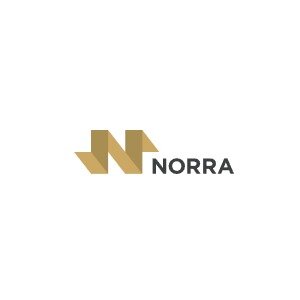Best Renewable & Alternative Energy Lawyers in Finland
Share your needs with us, get contacted by law firms.
Free. Takes 2 min.
Or refine your search by selecting a city:
List of the best lawyers in Finland
About Renewable & Alternative Energy Law in Finland
Finland is a pioneer in utilizing renewable and alternative energy sources. With abundant forests, extensive waterways, and technological innovation, the country has committed to an ambitious carbon neutrality goal by 2035. Renewable energy laws in Finland are designed to facilitate the shift from fossil fuels towards sustainable alternatives such as wind, solar, hydropower, and bioenergy. These laws are shaped not only by national policy but also by European Union directives which set binding targets and frameworks for member states. The legal landscape governs every aspect of renewable energy projects, from permitting and construction to grid connection and incentives for sustainable energy production and consumption.
Why You May Need a Lawyer
Navigating the intricate legal framework surrounding renewable and alternative energy can be challenging. You may need legal advice if you are planning to invest in, develop, or operate a renewable energy project, such as a wind farm or a bioenergy plant. Common situations that call for legal help include securing permits, understanding regulatory compliance, handling land use or property rights issues, dealing with contracting and financing, interpreting subsidy or incentive schemes, and resolving disputes or environmental challenges. Whether you are an individual, a company, or a public authority, a lawyer specialized in this field ensures your project meets all legal requirements and mitigates risks related to compliance and liability.
Local Laws Overview
Renewable energy in Finland is governed by a combination of local laws, EU directives, and international commitments. Key areas include:
- Electricity Market Act: Regulates the generation, distribution, and supply of electricity, including grid access for renewables.
- Land Use and Building Act: Governs the planning and use of land, crucial for siting energy installations.
- Environmental Protection Act: Sets out requirements for environmental impact assessments and licensing, especially relevant for large-scale projects like wind farms or hydroelectric plants.
- Renewable Energy Subsidies: Finland offers a feed-in tariff scheme and auction-based incentives for approved renewable energy projects.
- Permitting Process: Energy projects may require several permits including construction, environmental, and grid connection approvals.
- EU Regulatory Framework: National regulations are harmonized with EU-wide statutes, particularly the Renewable Energy Directive.
Laws are regularly updated to keep pace with technological advancements and evolving policy goals. Projects must comply with municipal, regional, and national legal requirements.
Frequently Asked Questions
What types of renewable energy are most common in Finland?
The main types are bioenergy, hydropower, wind power, and growing use of solar energy. Forestry fuels much of Finland's bioenergy sector.
Do I need permits to build a renewable energy installation?
Yes, most renewable projects require multiple permits, depending on size and location. This can include building permits, environmental permits, and grid connection approvals.
Are there financial incentives for renewable energy projects?
Yes, Finland offers incentives such as feed-in tariffs and an auction scheme for electricity from renewables. Eligibility depends on the project’s type and compliance with regulations.
How is renewable energy regulated at the municipal level?
Local authorities have significant influence over zoning, land use, and permitting decisions. Municipalities develop zoning plans that affect where projects can be sited.
What environmental assessments are required?
Large-scale projects may need comprehensive Environmental Impact Assessments under the Environmental Protection Act. The requirements depend on the project type and its potential effects.
Can individuals install solar panels on private property?
Yes, private property owners can generally install solar panels, but must comply with local building codes and may need permits for larger systems.
What role does the EU play in Finnish renewable energy law?
EU directives set targets and standards that Finland must implement, especially regarding market access, competition, and sustainability benchmarks.
What are the main challenges in setting up a wind farm?
Challenges include environmental permitting, land use conflicts, grid connectivity, and compliance with noise and safety standards.
How can a lawyer help with my renewable energy project?
A lawyer can guide you through the permitting process, ensure regulatory compliance, draft and review contracts, help secure funding, and manage disputes or claims.
What happens if a project does not comply with regulations?
Non-compliance can lead to fines, permit revocation, or legal action. Projects may be halted until issues are resolved.
Additional Resources
If you need more information or assistance, several organizations and authorities provide support on renewable and alternative energy:
- Ministry of Economic Affairs and Employment - Oversees national energy policy and legislation
- Energy Authority (Energiavirasto) - Regulates energy markets and monitors compliance
- Finnish Environment Institute (SYKE) - Provides data and expertise on environmental impacts
- Business Finland - Offers support and incentives for clean energy innovation
- Municipal planning offices - Key contact for local permits and zoning processes
- Finnish Wind Power Association and Finnish Bioenergy Association - Industry groups with resources and guidance
Next Steps
If you are seeking legal advice for a renewable or alternative energy matter in Finland, consider the following steps:
- Clearly define your project or legal issue
- Gather relevant documents such as permits, contracts, or correspondence from authorities
- Contact a qualified lawyer with expertise in renewable energy law
- Consult with local authorities or specialized agencies to understand regulatory requirements
- Stay up-to-date with legal developments that may affect your project or interests
Early legal guidance can help you avoid costly delays, ensure compliance with regulations, and maximize incentives or support schemes. Taking prompt action is especially important due to the complexity of environmental and permitting processes in the sector.
Lawzana helps you find the best lawyers and law firms in Finland through a curated and pre-screened list of qualified legal professionals. Our platform offers rankings and detailed profiles of attorneys and law firms, allowing you to compare based on practice areas, including Renewable & Alternative Energy, experience, and client feedback.
Each profile includes a description of the firm's areas of practice, client reviews, team members and partners, year of establishment, spoken languages, office locations, contact information, social media presence, and any published articles or resources. Most firms on our platform speak English and are experienced in both local and international legal matters.
Get a quote from top-rated law firms in Finland — quickly, securely, and without unnecessary hassle.
Disclaimer:
The information provided on this page is for general informational purposes only and does not constitute legal advice. While we strive to ensure the accuracy and relevance of the content, legal information may change over time, and interpretations of the law can vary. You should always consult with a qualified legal professional for advice specific to your situation.
We disclaim all liability for actions taken or not taken based on the content of this page. If you believe any information is incorrect or outdated, please contact us, and we will review and update it where appropriate.
Browse renewable & alternative energy law firms by city in Finland
Refine your search by selecting a city.

















